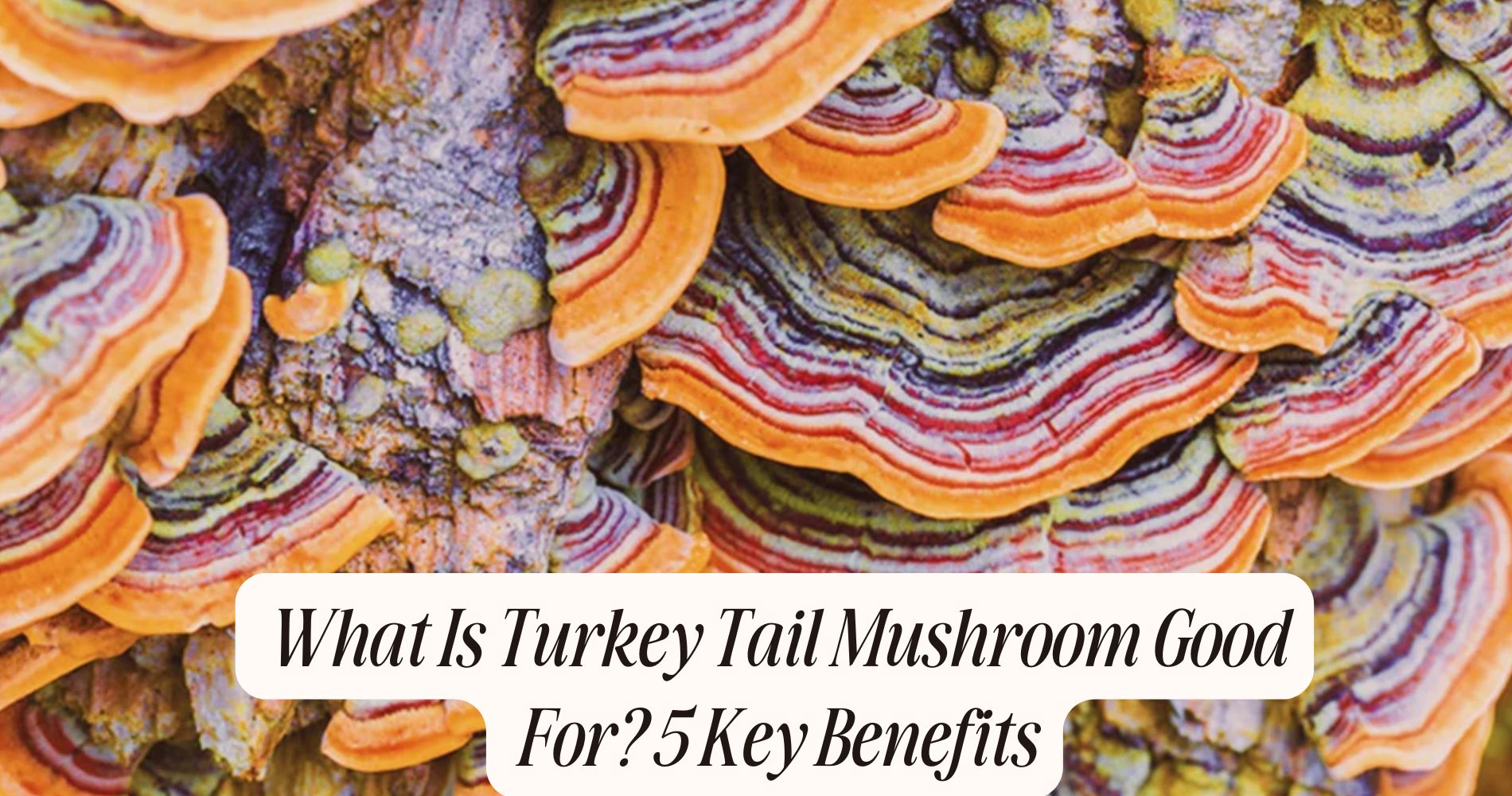
What Does Lion Mane Mushroom Do? Brain and Nerve Benefits
What does lion mane mushroom do? Lion's Mane mushroom, with its bioactive compounds, considerably supports brain and nerve health. It promotes neurogenesis and enhances the synthesis of nerve growth factor (NGF), which is essential for neuronal vitality. This mushroom's properties may help improve cognitive function, focus, and clarity while potentially alleviating anxiety and depression. Its nutritional profile further enriches your diet. To uncover more insights on its benefits and applications, you'll find intriguing information ahead.
Overview of Lion's Mane Mushroom
Lion's Mane mushroom, scientifically known as Hericium erinaceus, is a unique fungus renowned for its distinctive appearance and potential health benefits.
This mushroom has become a focal point in both culinary and medicinal spheres, largely due to its promising medicinal properties.
When you explore mushroom cultivation, Lion's Mane stands out for its relatively straightforward growing requirements and adaptability to various substrates, such as sawdust and hardwood logs.

Its impressive bioactive compounds, including erinacines and hericenones, contribute to its neuroprotective effects, which have garnered research interest for conditions like Alzheimer's and cognitive decline.
As you consider integrating Lion's Mane into your health regimen, understanding its cultivation and medicinal attributes provides a solid foundation for appreciating this remarkable fungus.
Nutritional Profile of Lion's Mane
The nutritional profile of Lion's Mane mushroom reveals a wealth of beneficial components that make it a valuable addition to your diet.
Rich in antioxidants, polysaccharides, and beta-glucans, this mushroom supports immune function and overall health. It contains essential vitamins, such as B vitamins, which play a vital role in energy metabolism and brain health.
Additionally, Lion's Mane is low in calories and high in dietary fiber, aiding digestion and promoting satiety. Its unique texture and flavor lend themselves to various culinary uses, from stir-fries to soups.
Incorporating Lion's Mane into your meals not only enhances their nutritional value but also offers potential health benefits, making it an excellent choice for those seeking to improve their well-being.
Mechanism of Action: How Lion's Mane Affects the Brain
Research indicates that Lion's Mane mushroom influences brain health through several key mechanisms. One significant aspect is its ability to promote neurotransmitter modulation, which can enhance communication between neurons. This modulation is essential for maintaining cognitive functions and emotional stability.
Additionally, the mycelium benefits of Lion's Mane contribute to neurogenesis, stimulating the growth and repair of nerve cells. This process is fundamental for brain plasticity, enabling the brain to adapt and reorganize itself.

Moreover, Lion's Mane contains compounds like hericenones and erinacines that support the synthesis of nerve growth factor (NGF), a protein critical for neuronal health. Together, these mechanisms highlight how Lion's Mane can play a pivotal role in supporting and maintaining peak brain function.
Potential Cognitive Enhancements
While exploring natural ways to boost cognitive function, Lion Mane mushroom emerges as a promising candidate.
Research indicates that this fascinating fungus may enhance brain health by promoting neurogenesis, the process of generating new neurons. This is particularly relevant for improving memory and learning capabilities.
Studies suggest that compounds in Lion Mane stimulate the synthesis of nerve growth factor (NGF), essential for maintaining neuronal health. By supporting synaptic plasticity, Lion Mane could help sharpen your focus and mental clarity.
Additionally, regular consumption might mitigate age-related cognitive decline, making it a valuable addition to your diet.
Neuroprotection and Nerve Regeneration
As you explore the domain of neuroprotection and nerve regeneration, Lion Mane mushroom stands out for its potential to safeguard and restore nervous system health.
Research indicates that its neuroprotective properties help shield neurons from damage caused by oxidative stress and inflammation. This protection is essential for maintaining the integrity of your nervous system.

Additionally, Lion Mane stimulates nerve growth factor (NGF) production, which promotes the growth and maintenance of neurons. Enhanced NGF levels can lead to improved nerve regeneration, potentially reversing damage from injuries or neurodegenerative diseases.
Mental Clarity and Focus Improvement
Lion's Mane mushroom may considerably enhance mental clarity and focus, making it a valuable addition to your cognitive health regimen.
Research indicates that its bioactive compounds, particularly hericenones and erinacines, promote nerve growth factor synthesis, which supports cognitive function.
By incorporating Lion's Mane into your daily routine, you might notice improved concentration during tasks, especially when paired with mindful meditation and cognitive exercises.
These practices further stimulate brain activity and reinforce cognitive resilience.
As you engage in activities that require mental acuity, the mushroom's neuroprotective properties could help sharpen your focus and enhance overall cognitive performance.
This synergy between Lion's Mane and mental practices may lead to a more profound and sustained improvement in your mental clarity.
Possible Role in Alleviating Anxiety and Depression
Recent findings suggest that Lion's Mane mushroom may also play a significant role in alleviating anxiety and depression. Research indicates that compounds in Lion's Mane can stimulate nerve growth factor (NGF) production, which is essential for brain health.
This neuroregenerative effect may contribute to anxiety relief by promoting neuronal health and improving communication between brain cells. Additionally, studies show that Lion's Mane may influence serotonin and dopamine levels, neurotransmitters important for mood regulation, consequently supporting depression management.
How to Incorporate Lion's Mane Into Your Diet
How can you easily add Lion's Mane mushroom to your daily meals? One effective method is to sauté fresh Lion's Mane in olive oil, enhancing its texture and flavor while preserving its nutrients.

This mushroom pairs well with various dishes, such as stir-fries, soups, and pasta. For cooking tips, consider adding it to your breakfast omelet or blending it into smoothies for a nutritional boost.
If fresh mushrooms aren't available, supplement options like powdered extracts or capsules can provide similar benefits. Just verify you're sourcing high-quality products to maximize efficacy.
Current Research and Future Directions
As researchers explore deeper into the unique properties of Lion Mane mushroom, promising findings continue to emerge regarding its potential cognitive and neurological benefits.
Current studies highlight its ability to stimulate nerve growth factor (NGF) production, which may enhance neuronal health and improve memory. Additionally, some trials suggest that Lion Mane could help alleviate symptoms of anxiety and depression, pointing to its broader implications for mental health.
However, more extensive clinical trials are needed to confirm these effects and establish ideal dosages. Future implications of this research could pave the way for innovative treatments in neurodegenerative diseases like Alzheimer's.
As interest grows, you might find yourself keeping an eye on this fascinating area of study for developments that could impact health and wellness considerably.
Boost Your Brain with SUPER MUSHROOM GUMMIES
Want to experience the brain-boosting benefits of Lion’s Mane without the hassle of cooking? SUPER MUSHROOM GUMMIES by Well Gummies make it easier than ever! Packed with 10 functional mushrooms, including Lion’s Mane for cognitive support, Reishi for stress relief, and Chaga for immune health, these delicious wild berry-flavored gummies fuel your mind and body naturally. No jitters, no crash—just calmer energy, sharper focus, and enhanced mental clarity. Try them today and feel the difference!
Frequently Asked Questions
Can Lion's Mane Mushroom Be Used as a Supplement for Children?
When considering child supplementation, lion's mane mushroom may support cognitive development. However, consult a healthcare professional before introducing it to your child's diet, ensuring it aligns with their specific needs and health requirements.
Are There Any Side Effects of Consuming Lion's Mane Mushroom?
While lion's mane mushroom is generally safe, some individuals may experience mild side effects like digestive discomfort or allergic reactions. It's essential to follow dosage recommendations to minimize safety concerns and guarantee a positive experience.
How Long Does It Take to See Benefits From Lion's Mane?
You'll typically notice Lion's Mane benefits within a few weeks of consistent use. For an accurate benefits assessment, consider tracking your progress over a Lion's Mane timeline to evaluate cognitive and nerve health improvements effectively.
Can Lion's Mane Mushroom Help With Memory Retention?
Yes, lion's mane mushroom may aid memory enhancement and improve cognitive function. Research suggests it stimulates nerve growth factor, potentially supporting brain health and boosting your ability to retain information and process thoughts effectively.
Is Lion's Mane Mushroom Safe for Pregnant or Breastfeeding Women?
You should consult a healthcare professional before using Lion's Mane mushroom while pregnant or breastfeeding. Adhering to Lion's Mane dosage recommendations and safety guidelines guarantees both your health and your baby's well-being during this sensitive period.
Conclusion
Incorporating Lion's Mane mushroom into your diet could offer significant brain and nerve benefits. Its unique compounds may enhance cognitive function, promote neuroprotection, and even alleviate anxiety and depression. Ongoing research continues to reveal its potential, making it a promising area of study for mental health and cognitive enhancement. By exploring various ways to integrate Lion's Mane into your meals, you might just access its full benefits for your overall well-being.




